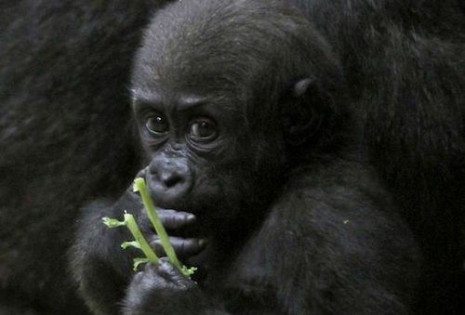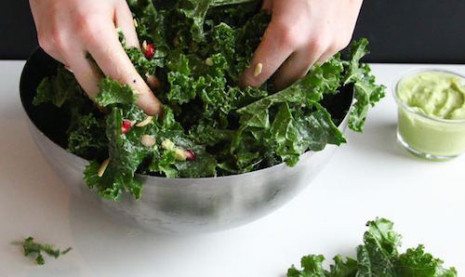When you decide to pursue a healthy lifestyle with the intention of extending your number of years here on earth and getting glowing skin and beautiful hair, it can be a little daunting!
There are so many “healthy” lifestyles to choose from (sadly, there are often many that come in the form of diets rather than sustainable lifestyles), it’s hard to sift through what might be a passing trend or fad and what has some really sound principles for lasting health.
Some convincing arguments are made in many of these diets, particularly in a couple of what I call the “ancestral based” diets like the 100-Mile diet (all about eating local foods), and the Blood-Type diet (which has good components but was recently debunked overall).
We actually talked about this diet a while ago, pointing out that all humans should have more or less an ideal diet—not based on blood type—and that the positive effects that people see after using this diet could be attributed to cutting out highly allergenic foods as well as the junk that none of us should be eating.
Each of these diets has a different slant but they all suggest that we should eat unprocessed, wholesome foods that can be found locally, and they all have their own idea of what the best foods are (sometimes what’s “best” may vary from person to person).
The idea, in some cases, is that we are designed to eat certain things depending on what area of the world our ancestors came from. That all sounds plausible until you stop to consider that gorillas, with whom we share common ancestors, are mainly vegetarian.
What we’re supposed to eat, really, is simple. It’s uncomplicated.
We’re just so far removed from it in the modern western world that new theories blossom up all the time to over-complicate what should be one of the most natural things—eating a healthful, plant-based diet.
Western Diet And Lifestyle
No matter how you look at it, our traditional western diet – processed food full of preservatives and other toxic chemicals – fast food, junk food, and artificial ingredients of all kinds, bears little resemblance to what our ancestors ate!
Our ancestors’ diets were full of fresh greens, nutritious roots, whole grains, fruits and berries.
Also, our western lifestyles, by comparison, are much more sedentary. Who hasn’t been guilty of circling a parking lot 5 times to get the space closest to the door to avoid walking the length of the parking lot to get in the grocery store at some point?
Imagine how different that is from spending most of every day gathering the food for your family and yourself to eat that day and then doing it all again the next day.
Is a Vegetarian Diet Healthier?
According to the most extensive study of vegetarians ever done, vegans tend to weigh less than meat eaters, are less insulin resistant (less inclined to diabetes), and are more likely to exercise regularly.
Vegetarians also live, on average, nearly a decade longer than people in the general population. Vegetarians also tend to consume less alcohol and are less likely to smoke. All of these factors play a part in longevity.
One of the many benefits of a plant-based diet is less susceptibility to disease. The incidence of all cancers combined is lower among vegetarians. Just two weeks on a plant-based diet can boost a woman’s defense against breast cancer.
Vegetarians are also much less prone to heart disease since most heart disease is associated with consuming animal fats. The higher fiber intake from eating a vegetarian or vegan diet plays a big part in reducing the risk of heart disease as well as diabetes.
Studies over the past 10 years have also shown that fruits and vegetables are powerful inhibitors of lung disease.
Diets high in dark green leafy vegetables like kale, are high in potassium and other things that help prevent strokes and respiratory infections.
Vegetarians are even less likely to get Alzheimer’s disease. In fact, meat eaters are more than twice as likely to suffer from dementia than vegetarians!
A Vegetarian Diet Could Make You Happier, Too
Well, if all those things weren’t convincing enough, it also happens that what we eat has an effect on our mood. It turns out that the old saying, “You are what you eat” might be truer than we know.
Studies have shown that people who eat diets high in fruits and vegetables are the happiest people.
Removing meat from the diet has shown a significant improvement in mood in only two weeks.
This is less time than it takes for a prescription anti-depressant to work. While there are plenty of “vegetarian junk foods”… in general, vegetarians are more likely to embrace a lifestyle that includes more healthy foods, fewer unhealthy habits, and a higher level of activity.
They are more inclined to create healthy environments by eliminating toxins, and are better able to respond to the world in positive ways.
All in all, these seem like some pretty good reasons to heap on a bigger helping of veggies.
Whether you dine exclusively on plants, one simple takeaway you can get from this is to make vegetables the primary part of your diet–and you’ll reap countless benefits.
In fact, I’m on my way to get some kale right now. And, I’m going to park at the far end of the parking lot!
Love,
Kimberly




There’s many good points here, but this line – “Vegetarians are also much less prone to heart disease since most heart disease is associated with consuming animal fats” – is inaccurate. Heart disease is not associated with the consumption of animal fats.
Very true about living longer….. Forks over knives
Kim
I’m really struggling maintaining a good diet now that I’ve got bad stomach burning problems. But anyway, was wondering how often you use the clarisonic and what cleanser you use it with. Ive had bad acne for 10 years and though Im 24 now its still going strong. Ive changed my diet mostly but still have acne and thought the clarisonic might help!
Jo- I struggled with acne for over 10 years as well. Although my diet has helped me more than anything else, I also got my skin balanced out by using The Oil Cleansing Method. I suggest googling it and reading as much as you can on the subject before trying it yourself. I absolutely believe it helped me gain control over my acne.
Ok, so the real thing here is not about “not eating meat”, but about eating vegetables. I have designed a diet (almost like Atkins) that curbed my type II diabetes. It involved a lot of vegetables and high fat meat. Yep, more fat than meat please. Don’t judge it so quickly , the science is quite sound and can probably win anyone in an argument if all biochemical facts are considered. So this is not about vegetarians living longer than meat eaters. It is about the absence of micro and phyto-nutrition being detrimental to health. Also in a documentary “BBC Documentary 2013 Don’t Grow Old BBC Documentary”, one of the researchers interviews 500 centenarians. None of them were vegetarians, one was an athlete and none ate yogurt. Like Sarah said, modern research has shown that animal fats, the saturated kind is in fact safer than unsaturated, simply because unsaturated are less stable and can spoil very easily leading to carcinogenic properties in the oil. Once again, this is not an argument of meat eaters vs non-meat eaters. If you go too far away from natural foods, like soya or hotdogs, you can be setting up yourself for a shorter life.